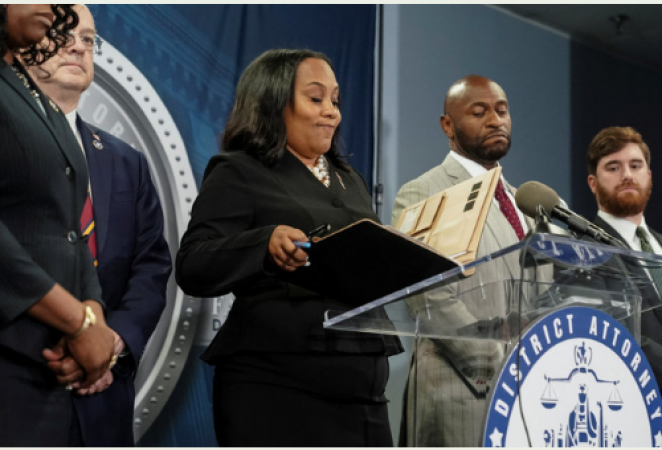
Washington: Fulton County District Attorney Fani Willis has proposed a pivotal trial date in March 2024 for a high-profile case involving former President Donald Trump and 18 other defendants. The charges revolve around alleged election interference in Georgia during the 2020 presidential election, a contest Trump ultimately lost to Joe Biden. Legal scholars and political observers anticipate the trial, which is estimated to span multiple weeks, to be a watershed moment with far-reaching implications.
The allegations center on claims that Trump and his associates exerted undue pressure on Georgia officials to overturn the 2020 election results. The indictment asserts that they propagated falsehoods regarding voter fraud and actively encouraged officials to "find" additional votes that could alter the outcome in Trump's favor.
The trial carries immense significance for Trump's legal and political stature. A conviction could lead to a maximum sentence of 10 years in prison, while an acquittal could bolster his prospects of securing the Republican nomination for the 2024 presidential race.
Trump's legal team contends that the charges are politically motivated and requests a postponement of the trial until after the 2024 election. Nonetheless, Willis remains steadfast in her commitment to expedite the proceedings.
Scheduled to commence on March 4, 2024, just before Super Tuesday—the day with the highest number of delegates at stake in the Republican primary—the trial's timing carries substantial implications for Trump's campaign. A conviction might erode his chances of nomination, whereas an acquittal could potentially energize his bid.
Also Read: "Russian Military Parade at Patriot Park: Showcasing Seized Western Gear Amid Rising Tensions
The trial is poised to captivate the media and the public due to its unprecedented nature: a former president facing criminal charges. Its outcome could reverberate throughout American politics, influencing public perception of the rule of law and presidential accountability.
Aside from Trump, the list of co-defendants includes notable figures such as:
The trial is expected to be intricate and protracted. Prosecutors must establish that Trump and his co-defendants knowingly propagated false claims about voter fraud and deliberately interfered with the election process. Conversely, the defense will likely argue that their actions were an exercise of their First Amendment rights and did not constitute criminal conduct.
Also Read: Food Crisis Sparks Armenia-Azerbaijan Conflict at UN Over Nagorno-Karabakh
Ultimately, the trial underscores the United States' commitment to the rule of law. It addresses whether a former president can be held accountable for actions potentially motivated by political considerations. The verdict's reverberations could reverberate widely within the fabric of American democracy.